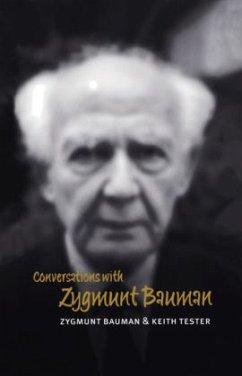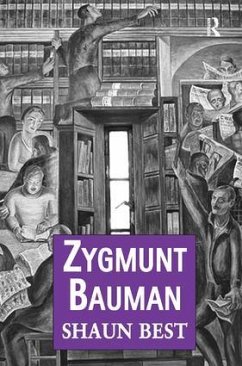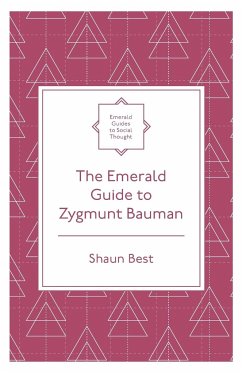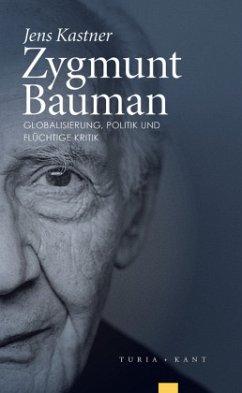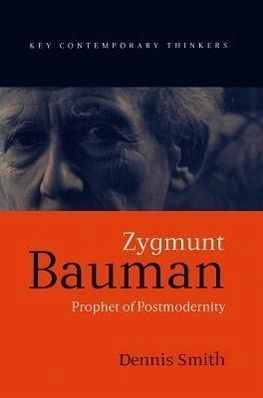
Zygmunt Bauman
Versandkostenfrei!
Versandfertig in über 4 Wochen
29,99 €
inkl. MwSt.
Weitere Ausgaben:

PAYBACK Punkte
15 °P sammeln!
In this major new book, Dennis Smith provides a clear introduction to the work of Zygmunt Bauman and sets the agenda for future discussions of this controversial and challenging social thinker. Over the last decade, Bauman has developed a powerful and distinctive analysis of the human condition in the postmodern age. He has analysed the moral dilemmas, emotional torments, social pressures and political choices that are set to plague us in the future. But where does Bauman's vision come from? How convincing is it? And what is Bauman's distinctive contribution to our understanding of ourselves? ...
In this major new book, Dennis Smith provides a clear introduction to the work of Zygmunt Bauman and sets the agenda for future discussions of this controversial and challenging social thinker. Over the last decade, Bauman has developed a powerful and distinctive analysis of the human condition in the postmodern age. He has analysed the moral dilemmas, emotional torments, social pressures and political choices that are set to plague us in the future. But where does Bauman's vision come from? How convincing is it? And what is Bauman's distinctive contribution to our understanding of ourselves? This wide-ranging and accessible book provides the answers to these questions. Smith shows that the central themes in Bauman's recent analyses of modernity and postmodernity were already present in his early writings. He traces strong links between Bauman the Polish dissident intellectual under a communist regime in the 1960s and Bauman the prophet of postmodernity in the capitalist West during the 1980s and 1990s. The book offers more than just analysis and assessment, though, as Smith enters into a lively correspondence with Bauman, exchanging views on such topics as the nature of history, morality, postmodernity, risk and globalization. This valuable introduction will be of interest to second-year undergraduates and above in sociology, philosophy, politics and cultural studies.





